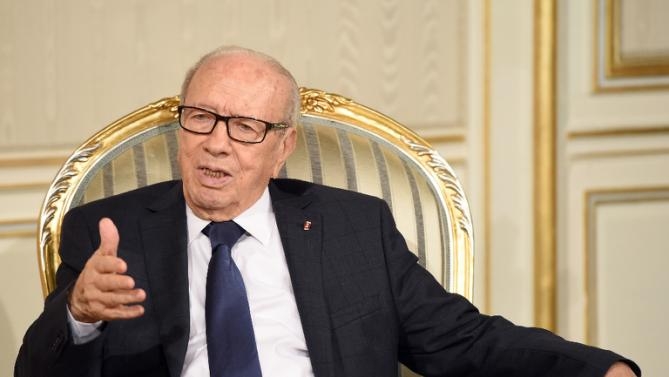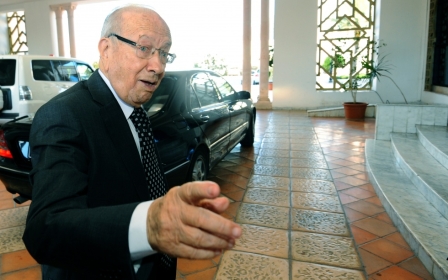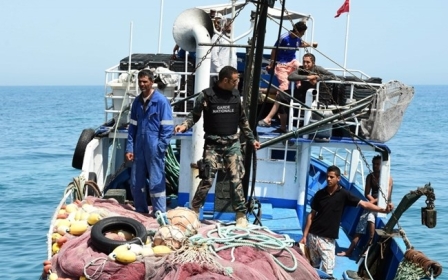Row in Tunisia over claims that UAE is buying political influence

There have been calls for an investigation into the United Arab Emirates’ role in Tunisia, after a high-profile Tunisian broadcaster accused the UAE of attempting to use its influence in the North African country to pursue a crackdown on the Islamist Ennahda party.
Journalist Sofian Ben Farhat, who claims to be a close confidant of President Beji Caid Essebsi, said this week that the UAE sought to persuade Essebsi to attempt to seize power from Ennahda, the party with the biggest number of elected parliamentarians and which held the balance of power from 2011 to 2014.
Farhat made his comments on Tunisia’s Nessma television channel - the outlet is owned by a businessman who helped to found the ruling Nida Tounes party, which Essebsi heads.
Farhat claims the president disclosed during a private conversation that Emirati officials asked him to “repeat the Egyptian scenario” in return for guarantees of financial aid.
Egyptian authorities, led by president and former army chief Abdel Fattah al-Sisi, have led a large-scale crackdown on dissent, focusing on the now-banned Muslim Brotherhood.
Years of unrest have left the Egyptian economy in the doldrums, and since the overthrow of Egypt's elected president Mohamed Morsi in July 2013, Cairo has received billions of dollars in aid from the oil-rich Gulf states, most notably Saudi Arabia and the UAE.
The request reportedly came just after Essebsi was brought to power in December 2014 following Tunisia’s first free presidential election.
According to Farhat, Essebsi refused to follow the same model. The president’s office has not responded to the reports.
Essebsi enjoys close relations with the rulers of the UAE, whose foreign minister, Abdullah Bin Zayed, flew to the capital Tunis in March for an unscheduled visit.
During his successful election campaign, Essebsi was dogged by a foreign funding scandal after it was revealed that the UAE had given him a gift of two luxury armoured cars.
Opposition politician Anwar Gharbi seized on Farhat’s claims, demanding the establishment of an all-party parliamentary committee to investigate reports that the UAE had sought to use its influence to “destroy our country”.
“The intervention of the UAE in Tunisian affairs is extremely dangerous, and represents a clear attack against the country and its people,” he told local news site Quds Press.
Gharbi is a leading figure in the People’s Movement for Citizens, led by former president Moncef Marzouki, who lost out to Essebsi in last year’s elections.
In his comments, Farhat also launched a scathing attack on Marzouki, accusing him of being an “agent for Qatar”.
The comments came after Marzouki gave a speech in Doha last week in which he thanked Qatar for supporting Tunisia after the 2011 revolution that overthrew former strongman president Zinedine Ben Ali.
Speaking on Tunisian television, Farhat accused Marzouki of supporting “criminal Qatar, which destroyed Syria and Libya and participated in the partitioning of Iraq”.
“We want to know how much [money] it took for Marzouki to make these kinds of statements. A dictatorship for the sake of the nation is preferable to infiltration in the name of democracy and human rights.”
The row highlights fears shared by many that Tunisia, whose economy is experiencing its worst growth for three years and which relies to a large extent on aid, is at risk of being sucked into a larger regional power play.
Translation: The economically strong countries like Saudi Arabia, Kuwait and the UAE must intervene and help those that are struggling with financial crises, like Tunisia, so that they do not become prey for Qatar and Turkey
New MEE newsletter: Jerusalem Dispatch
Sign up to get the latest insights and analysis on Israel-Palestine, alongside Turkey Unpacked and other MEE newsletters
Middle East Eye delivers independent and unrivalled coverage and analysis of the Middle East, North Africa and beyond. To learn more about republishing this content and the associated fees, please fill out this form. More about MEE can be found here.




